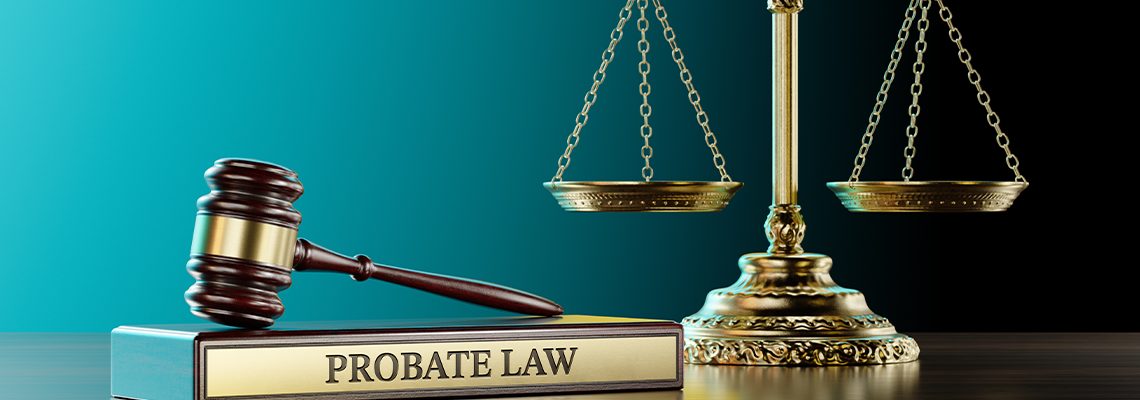
Re Filing a Demurrer in Probate Court: Can you Do it and When?
In California, a demurrer is a formal legal challenge a defendant files against a plaintiff's complaint or cross-complaint, arguing that the pleading is legally insufficient and does not meet the requirements to support a valid claim or cause of action. Instead of disputing the facts, the defendant asks the court to dismiss the case (or part of it) because even if the alleged facts were true, they do not constitute a legal wrong or meet all legal requirements. It is quite often a pleading filed in civil actions when circumstances call for it.
However, it may be useful in Probate Court as well. All of the meet and confer requirements between counsel prior to filing as demurrer are the same, but the timing of the filing is different.
Goebner v. Superior Court (2025) 110 Cal. App. 5th 1105 controls on the issue of timing to file a demurrer in probate court.
A demurrer can be filed in California probate court to challenge a petition, and while it acts like a civil action demurrer, its timing is different. Instead of a 30-day response window, a demurrer in probate court must generally be filed at or before the initial hearing date for the petition. While most Probate Courts have honored this established premise, the issue appears to have been resolved in April 2025, by the case of Goebner v. Superior Court (2025) 110 Cal. App. 5th 1105, a case that decided the issue of when a demurrer can be filed in Probate Court. The brief answer: right up to the date of the hearing, just like any other responsive pleading in probate court. In Goebner the First District Court of Appeal held that in a in a probate proceeding concerning trust amendments, a demurrer filed two days before the initial hearing was timely under Prob. Code, § 1043, subd. (a), providing for a response or objection at or before the hearing, because the 30-day response deadline after service of a complaint in Code Civ. Proc., § 430.40, did not govern a demurrer to a petition under the Probate Code, as a demurrer was a form of an objection to a petition or complaint under Code Civ. Proc., § 430.30, subd. (a), making it appropriate under Prob. Code, § 1000, subd. (a), to define objections to include demurrers. (Id. at 1111)
Reviewing the relevant statutes, the Goebner court opined:
Division 3, part 1, chapter 3 of the Probate Code—addressing hearings and orders—governs all probate proceedings, “except where the statute that provides for the hearing of the before the hearing.” (§ 1043, subd. (a), italics added.) Similarly, interested persons “may appear and make a response or objection orally at the hearing.” (Id., subd. (b), italics added.) The statute underscores that oral objections may be made initially at the hearing by noting that the “court in its discretion” may “grant a continuance for the purpose of allowing a response or objection to be made in writing.” (Ibid.)
While the Probate Code does not expressly define “objection[s]” to include demurrers, we conclude that interpretation is appropriate. Pursuant to section 1000, we look to the Code of Civil Procedure. (§ 1000, subd. (a).) The Code of Civil Procedure recognizes that a demurrer is a form of an objection to a petition or complaint. (Code Civ. Proc., § 430.30, subd. (a) [a “ground for objection to a complaint, cross-complaint, or answer” “may be taken by a demurrer to the pleading”]; see also id., § 430.10 [party “may object, by demurrer” on enumerated grounds]; see Friends of Shingle Springs Interchange, Inc. v. County of El Dorado (2011) 200 Cal.App.4th 1470, 1482 [133 Cal. Rptr. 3d 626].) Indeed, Code of Civil Procedure part 2, title 6, chapter 3, article 1, which includes these provisions, is titled “Objections to Pleadings.” Reading these Probate Code and Code of Civil Procedure statutes together, an interested party may file a demurrer to a petition under the Probate Code “at or before the hearing.” (§ 1043, subd. (a); see Tan v. Appellate Division of Superior Court (2022) 76 Cal.App.5th 130, 137 [291 Cal. Rptr. 3d 292] [requiring courts where reasonably possible to harmonize statutes, reading them together to give effect to all provisions].) The Probate Code further addresses concerns that a party may present a demurrer at a hearing—thus placing the petitioner at a disadvantage—by allowing a court to “continue or postpone any hearing, from time to time, in the interest of justice.” (§ 1045.) The deadline in the Code of Civil Procedure to respond and object within 30 days after a complaint is served is inapposite.
The Goebner court took the statutory rule of California Probate Code Section 1000, which states that the rules of practice for civil actions apply to probate proceedings, except where the Probate Code provides otherwise, and extended the analysis to its only logical conclusion. Goebner simply reconciled the various statutes and made definitive what most if not all probate courts have already have recognized already, that under the Code of Civil Procedure a demurrer is a form of objection, and in probate court interested persons like a trust beneficiary should have right up through the date of the hearing to state their objection, including by demurrer.
The attorneys of Bochnewich Law Offices, APC, are familiar with these procedural matters, both in civil actions and how they specifically apply in probate court. If you have a trust and estate litigation matter and require representation in probate court, please give Attorney Peter Bochnewich, and attorney with 33 years’ experience, a call. Bochnewich Law Offices, APC represents clients throughout Southern California Probate Courts, including the counties of Riverside, San Bernardino, Los Angeles, Orange County, and San Diego County.
